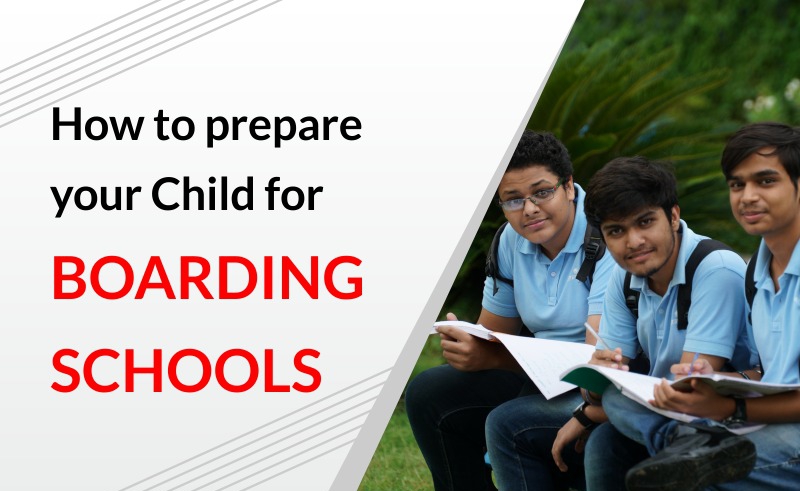
Preparing your child for boarding school can be a daunting experience. It can be difficult for both the parents and the child, as the parents will be concerned about their child’s wellbeing, and the child may experience feelings of homesickness and isolation. However, there are a few steps you can take to help make the transition smoother. This guide will provide some tips on how to prepare your child for boarding school, from getting organized to helping your child to adjust emotionally. With the right preparation, your child will be ready and excited to start a new chapter in their life.
Preparing your child for boarding school can be an exciting yet daunting experience. It’s important to give your child the necessary tools and support to make the transition to boarding school life easier. Start by making sure they are academically prepared and have the necessary life skills to succeed. Talk to your child and make sure they are comfortable with the idea of living away from home and open to the opportunities that come with a boarding school setting. Finally, make sure you are accessible and available for support during the transition period and throughout the school year. With the right preparation, your child can have a successful and rewarding boarding school experience.
How to Discuss the Benefits of Boarding School with Your Child
When discussing the benefits of boarding school with your child, it is important to take an approach that is both informative and supportive. Start by explaining the positive aspects of attending a boarding school, such as the opportunity to live away from home, make new friends, and learn independence. Talk about the academic opportunities available, such as a rigorous curriculum and access to higher-level courses. Explain the social benefits, such as the chance to become part of a diverse and supportive community. Be sure to address any concerns your child might have. Discuss the importance of staying connected with family and friends and the ways in which you can maintain contact.
Talk about the academic and social support systems in place to help students succeed. Explain the safety protocols that are in place and the resources available for students to manage their mental health. Finally, encourage your child to ask questions and voice any concerns they may have. Be sure to provide honest answers and be willing to listen to their thoughts and feelings. Show them your enthusiasm and support for their potential decision to attend a boarding school. By taking this approach, you can help your child make an informed and confident decision about their education.
How to Choose the Right Boarding School for Your Child
Choosing the right boarding school for a child can be a difficult decision for any parent. It is important to take the time to research and weigh the options carefully. Here are some tips to help make the process easier. First, consider your child’s academic interests and abilities. Talk to your child’s current school to get an idea of what type of education and learning environment will best suit them. Consider the types of programs offered by different boarding schools, as well as the cost and location. Second, look into the school’s reputation. Look up reviews online and talk to parents of children who have attended the school to get an idea of what it is like.
Ask about the quality of the teaching, the size of the classrooms, and the overall atmosphere of the school. Third, visit the school. Schedule a tour to get a better sense of the school and its facilities. Talk to the staff and the students to get a better understanding of the school’s culture. Finally, talk to your child about their thoughts and feelings. Ask them what they think about the school and if they would be comfortable living there. Make sure to take their opinion into account when making a decision. By taking the time to consider all of these factors, parents can ensure that they make the best decision for their child when it comes to selecting a boarding school.
Tips for Staying Connected With Your Child at Boarding School
- Make an effort to stay in contact regularly: Set aside a regular time to call, write letters, or video call your child. Scheduling a weekly call or writing a letter twice a month can be a simple way to stay connected with your child.
- Send care packages: Sending care packages filled with snacks, school supplies, and other items can be a great way to make your child feel loved and supported from afar.
- Ask your child about their experience: Ask your child questions about their time at boarding school to show you are interested in their experience.
- Have meaningful conversations: Have meaningful conversations with your child about topics that truly interest them. This will help your child feel more connected with you.
- Make the most of visits: If you are able to visit your child, make the most of it. Spend quality time together and make sure your child knows you are there for them.
- Encourage your child to make friends: Encourage your child to make friends and participate in activities to help them feel connected and supported while away from home.
- Be supportive: Be supportive of your child and their experience. Let them know you are proud of them and are there for them.
- Talk about home: Remind your child of home and the memories you share. Talking about home can make them feel more connected to home while they are away.
Helping Your Child Manage Homesickness at Boarding School
It is not uncommon for a child to experience feelings of homesickness when attending a boarding school. Homesickness can be a normal and healthy emotion, but if it is not handled properly it can have a negative effect on a child’s academic and social performance. Here are some tips to help your child manage homesickness while attending boarding school. Encourage Positive Thinking. Remind your child that homesickness is a normal feeling, and will pass with time. Help your child focus on the positive aspects of their experience, such as new friends, new activities and opportunities to learn. Stay Connected. Ensure that your child has access to a phone or computer to stay in touch with you and their friends. Encourage them to write letters, emails or make video calls to stay in contact.
Create a Positive Environment. Help your child make their new living space feel like home. Encourage them to decorate their room with personal items and photos of family and friends. Be Open and Honest. Talk to your child openly and honestly about their homesickness. Listen to their worries and concerns and let them know that it is OK to feel homesick. Encourage Healthy Habits. Remind your child to maintain a healthy diet, exercise regularly and get enough sleep. These healthy habits will help them manage their homesickness and stay focused on their studies. Seek Help.
If your child’s homesickness persists or begins to interfere with their studies, seek help from the school’s guidance counselor or psychologist. They can provide professional assistance to help your child manage their emotions. By following these tips, you can help your child manage their homesickness and have a successful experience at boarding school.












